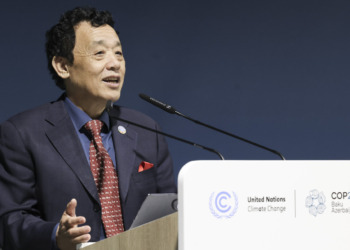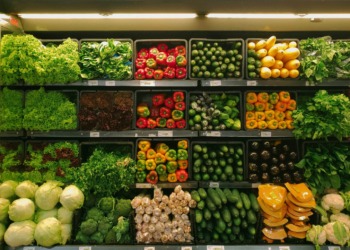A report released this week from the British Medical Journal (BMJ) includes analysis of data from “281 studies from 36 different countries.” The results are shocking – “the overall pooled prevalence of food addiction using YFAS [Yale Food Addiction Scale] was 14% in adults and 12% in children.”
Ultra-Processed Foods (UPFs) cause negative health effects, British Heart Foundation (BHF) says, and the “evidence to suggest that ultra-processed foods are bad for our heart and circulation seems to be growing.” (bolding added)
The BHF also reported that, at the European Society of Cardiology Congress in August 2023, a study was presented showing that out of “10,000 Australian women [tracked] for 15 years, those with the highest amounts of ultra-processed food in their diet were 39 per cent more likely to develop high blood pressure than those with the lowest.” (bolding added)
Another study put forward at the congress, which amalgamated 10 studies involving over 325,000 people, found that those who ate the highest amounts of UPF were “24% more likely to experience serious heart and circulatory events including heart attacks, strokes and angina.”
Addiction to UPFs is catching up with “other legal substances,” the report notes. In fact, “one in seven adults and one in eight children may be hooked,” The Guardian writes.
Food addiction has levelled alcohol addiction, which is also at 14% in adults, while tobacco addiction inches ahead at 18%. According to the BMJ’s report, continued consumption of UPFs meets the “criteria for substance use disorder in the context of food intake.”
This means that “carbohydrates or fats evoke similar levels of extracellular dopamine in the brain striatum to those seen with addictive substances such as nicotine and alcohol.”
A Global Health Challenge With Uneven Impact
The BMJ report draws from “281 studies from 36 different countries,” showing that worldwide consumption of UPFs is increasing. In fact, these addictive foods now comprise over half of the average person’s diet in the US and the UK.
Co-Founder of Leon Restaurants and the Sustainable Restaurant Association, Henry Dimleby, told British newspaper The Independent that these results “should be a wake-up call” for Britain, “given that UPF represents 55% of [the UK citizens’] diet.”
While the report draws from global data, it also notes that we need to take note of the “social justice implications of UPF addiction.” For those living in low- and middle-income countries, UPFs may be an important source of sustenance, for which few alternatives are available.
Not only this, but UPFs are starting to overthrow traditional foods. The overproduction of UPFs worldwide, the British Medical Journal writes, “comes at the expense of the cultivation, manufacture and consumption of traditional foods, cuisines and diets, comprising mostly fresh and minimally processed foods.”
Even in higher income countries, social inequalities make avoiding UPFs harder for some. As the BHF neatly phrases: “It might sound like we should go back to eating only foods that are minimally processed, but with restricted time and budget, this isn’t an option for most of us.”
‘Do people want these foods to be more expensive? More limited in how we can buy them?’
Anthony Warner, a food consultant, tells #Newsnight that targeting ultra processed foods could increase inequality. pic.twitter.com/9cK5my06vl
— BBC Newsnight (@BBCNewsnight) August 30, 2023
One study released by The American Journal of Clinical Nutrition notes that “more severe food insecurity [is] associated with higher intakes of ultra-processed foods.”
Another study published by the Journal of the Academy of Nutrition and Dietetics compares levels of food addiction in pregnant persons and caregivers between food-secure and food-insecure households:
“Pregnant individuals in food-insecure households reported 21% higher food addiction symptoms than pregnant individuals in food-secure households [and] caregivers in food-insecure households had 56% higher food addiction symptoms than caregivers in food-secure households.”
In short, “addictive drugs are not necessary for survival; eating is.”
A Greener Diet
So, UPFs are harmful for our health, and their consumption is closely tied to social and geographic inequalities — but they’re also bad for the environment.
Sustainable News Magazine Wicked Leeks writes that food processing, refrigerating and transporting ultra-processed foods “generates one third of all greenhouse gas emissions” worldwide, and nods to research showing that UPFs are more closely connected to emissions than other food groups.
Related Articles: Ultra-Processed Foods: What Are They and Why Should You Avoid Them? | What ‘Upcycled Food’ Is and Why You Should Try It
Indeed, the British Medical Journal also reports that the “global industrial food system and consequent rapid rise of ultra-processed foods is severely impairing biodiversity,” and that “the contribution of ultra-processed foods to agrobiodiversity loss is significant.”
The report begs the question, how can we combat food addiction for the good of our bodies and our planet?
Battling Processed Food Addiction
The BMJ’s report suggests three main courses of action to combat processed food addiction, including ultra-processed food and beverage taxes, a more thorough and explicit labelling system, and a reformulation of food supplies.
The report nods to research undertaken by the American Medical Association, which shows that 103 countries have already “passed sugar sweetened beverage (SSB) taxes,” and a few of them also tax UPFs. In theory, the report states, the income generated by these taxes would then be reinvested into other health initiatives.
Moreover, The Guardian reports that the UK Department of Health and Social Care has “already introduced legislation to restrict the placement and promotion of certain products in supermarkets to discourage unhealthy food choices.”
The labelling of ultra-processed foods is crucial, according to organisations such as the BMJ, Think Global Health, the British Association for Nutrition and Lifestyle Medicine, and the World Health Organisation (WHO).
It is crucial, says Think Global Health, because ultra-processed foods aren’t always exactly what you’d think:
“Ultra-processed foods are a much broader category than “junk food.” Some ultra-processed foods are marketed as healthy and nutritious, including breakfast cereals, flavored yogurts, and snack bars. A product can be marketed as “low fat” or “no added sugar” and still be an ultra-processed food.
As the BMJ reports, spreading awareness of exactly what ultra-processed foods are, and that they can be highly addictive, “could lead to novel approaches in the realm of social justice, clinical care, and policy approaches.”
The report concludes by advising that a “suite of policies targeting UPFs are needed,” and that “no one food policy will transform unhealthy food environments.”
Editor’s Note: The opinions expressed here by the authors are their own, not those of Impakter.com — In the Featured Photo: A bowl of chocolates. Featured Photo Credit: Pexels.










